Ad for Tokyo auditions lets would-be anime stars know that they won’t be working in the booth if they’ve previously done work with their clothes off.
business (Page 13)
Kumamoto Prefecture is still reeling after back-to-back large scale earthquakes struck the region late last week. Yet somehow Japan’s major convenience store chains have managed to get 97 percent of their shops up and running in a matter of days.
Unless your definition of “almost none” is “enough to get a side job.” Then go right ahead.
There’s a reason why the same parents who encourage their kids to become doctors or lawyers don’t try to steer them into becoming anime studio employees.
Chinese officials are set to discuss ways to stimulate the country’s sputtering housing market during its Central Economic WorkingConference later this month, according to Chinese state media.
On November 18 a young woman was spotted on the streets of Shenzhen City in Guangdong, China carrying a sign which read: “Overnight and overtime work has made me into an old lady. Both my love and work lives are miserable. I request approval for workers’ compensation.”
It was an unusual yet straightforward demand that triggered debate and reflection on the state of working conditions in the country.
Japan is famous for fast trains, but one new line crawls along at 14 kilometers (8.7 miles) per hour! Can the ultra-slow Snow Turtle save an endangered company?
November marks five years since Vikas Pradhan sent out his first tweets in broken Japanese describing the hardships of starting a restaurant. In response and a heartwarming show of support, the Twitter community rallied behind Pradhan not only online but in actual paid visits to his Nepalese cuisine restaurant Daisuki Nippon, putting it firmly in the black.
However, in a rather sudden turn of events, Pradhan tweeted that as of 31 October the original Daisuki Nippon had closed down.
It’s no secret that Japan may be headed for a bit of a labor crunch, as the population ages and many older workers reach retirement age with fewer young up-and-comers to replace them. And, while the Japanese government seems reluctant to take measures to replenish the shrinking workforce with foreign laborers, non-Japanese workers are nevertheless entering Japanese corporations and workplaces in record numbers.
But Japanese offices are also notorious for their long hours, slow pace of advancement, and frequent, long meetings. Traditional Japanese companies seem stuck in an old-school work culture even as companies in the rest of the world offer increasingly progressive work-life balance programs, workplace perks, and office hours.
With this stark contrast in mind, our Japanese sister site tracked down seven non-Japanese workers to get their for-realsies impressions of what it’s actually like to work at a Japanese company.
Career arcs in Japan used to be simple. You finished school, got a job, and worked there until it was time to retire. Along the way, you were paid a salary calculated strictly on the basis of how long you’d been with the company.
That’s not necessarily the case anymore, and as more and more Japanese switch employers, and even industries, they need a baseline from which to evaluate the pay of potential posts, which is where Japanese website Kyuryo Bank comes in. Yes, Kyuryo Bank has all the salary-related numerical data and progression charts you’d expect, but it also has something truly unique: awesome anime-style illustrations of professions ranging from public accountant and lawyer to web designer, pro blogger, and yes, even “chicken sexer.”
Now that it’s October, fall is slowly beginning to creep up on Japan, which means seasonal favorite dishes including pumpkin, sweet potato, and mushroom will again be arriving on dinner tables across the land in no time. As for the lattermost, people from the countryside are more likely to pick or grown their own rather than buy mushrooms from the supermarket, and some varieties like matsutake can easily retail for a few hundred dollars.
Unfortunately matsutake and other kinds of mushrooms don’t fetch quite as high of a price in China, but while one man was gathering mushrooms, he stumbled across something that was worth much more: a giant bees’ nest.
It’s no secret that working in Japan can be pretty miserable. Long hours, unpaid overtime, power harassment, and mandatory drinking parties with coworkers are just some of the factors that contribute to workers all over Japan leading stressful lives.
But misery loves company, so that’s why we present the top 11 tweets to make you feel glad you don’t work in Japan. Some of them are attempts at encouragement, some of them are commiserating, and some of them are so painfully sad that you can’t help but cry. So read on and see how your own work compares to Japan!
Comiket 88 is over now, sadly enough, but the Internet is still awash in the afterglow of dojinshi and cosplay. Of course, everyone is already looking forward to the next event this winter, from cosplayers to artists to taxi drivers.
Yes, you read that right, it seems that fans and artists aren’t the only ones who love Comiket! Apparently the massive event draws taxi drivers from all over Tokyo because it’s the best place to make money, according to one tweet that captured a ton of attention in Japan last weekend.
The corporate culture at RocketNews24 is pretty casual, but before I joined the team I spent several years working in the service and hospitality sectors. As a country that takes both work and etiquette very seriously, it’s probably not a surprise that Japanese business etiquette has a detailed code of proper conduct, all in an effort to foster an atmosphere of mutual respect and smooth cooperation.
Still, even for some people born and raised in Japan, the list of dos and don’ts can feel a little too long, and those who’d rather not have to stand on ceremony compiled a list of their own of the top 10 Japanese business manners young adults could do without.
In Japan customer service can be pretty unreal. Little things like taxi doors opening or closing automatically and complimentary reading glasses at check-out counters are harmless and go unnoticed by many locals, and are probably under-appreciated. Sometimes, however, the desire to please the customer and attend to their every need is a little over the top and some people find it just down-right annoying.
Online research group iResearch surveyed a group of 200 male 20-somethings for their thoughts on “Which services do you secretly wish people would stop providing?” Some of the results are pretty understandable, but some of them make you wonder if the guys surveyed just hate people in general!
As information technology continues to evolve, telecommuting is becoming increasingly feasible and popular in Japan. Still, sometimes mobile workers find themselves in need of more business-oriented facilities than their home office has, and make use of shared workspaces like the ones we previously looked at.
But while all of those communal offices have amenities such as Wi-Fi, power outlets, and meeting areas, only this one has a resident cat that you can play with when you need a stress-relieving break from work.
One day in college, my business operations management professor was talking about Japanese automaker Toyota, and about the huge impact of its production processes and corporate culture on the business world. “Toyota owes much of its success to its kaizen system,” he told us, and while I largely agreed with what he was saying, I didn’t really agree with how he was saying it.
See, while Toyota’s ideal of continually looking for better, more efficient ways of handling tasks is nifty and all, there’s nothing particularly special about the word kaizen, which just means “improvement.” Even as someone who’s spent most of his life looking for excuses to speak Japanese, insisting on using the word kaizen, when otherwise speaking English, has always seemed a little odd to me.
Oddly enough, though, right now there’s probably a Toyota employee sitting at his desk and scratching his head over one of his Japanese coworker’s penchant for using foreign loanwords, many of which might be on this list of the top 10 commonly used English business terms that Japanese businessmen wish their colleagues would use Japanese for.
Modern technology makes it easier than ever for people to work anywhere, not just in a traditional office setting. But every telecommuter or creative type knows the frustration of grabbing your laptop and any other necessary items, then carrying them to your local cafe, anxious to punch in and get some projects done, only to discover there’re no available seats.
Sure you might not need a whole office, but not even having a small desk to work on can really hurt your productivity. Here with a solution is ambitious and creative design house Bibi Lab, which is now selling a wheeled suitcase with an attached desk and chair that’s not only great for mobile professionals, but for artists, cosplayers, and all sorts of other people on the go.
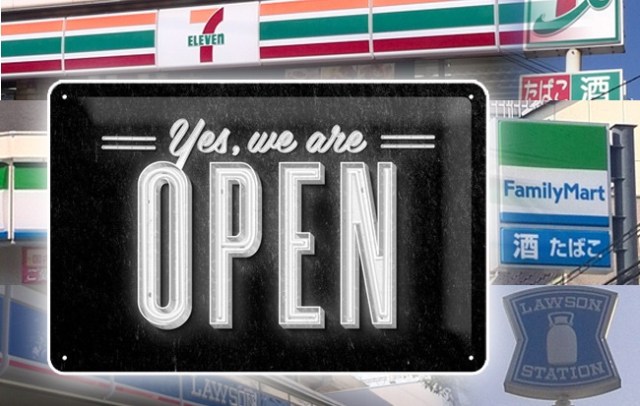



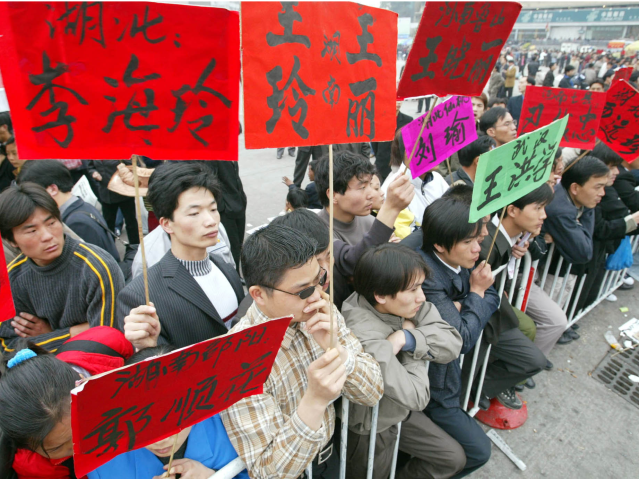

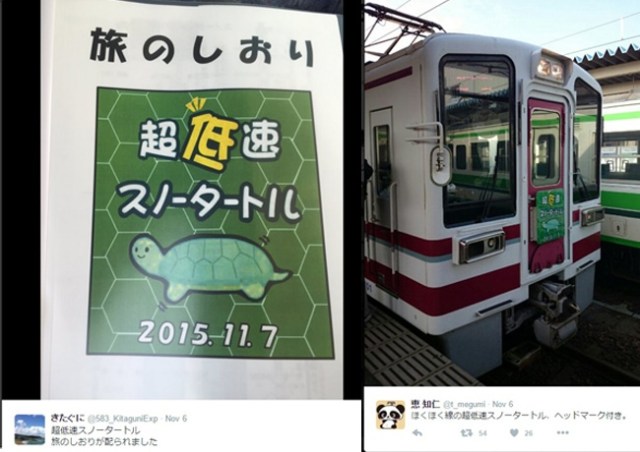




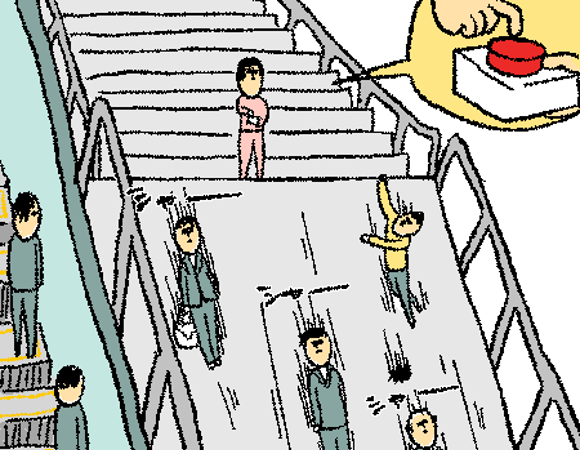
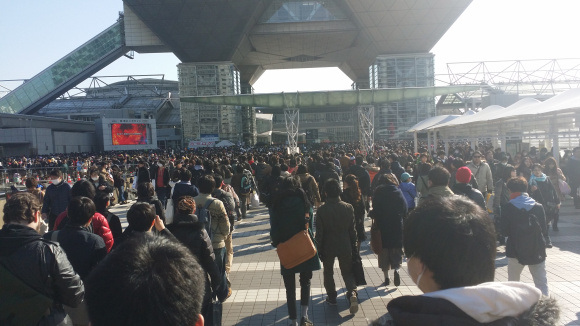
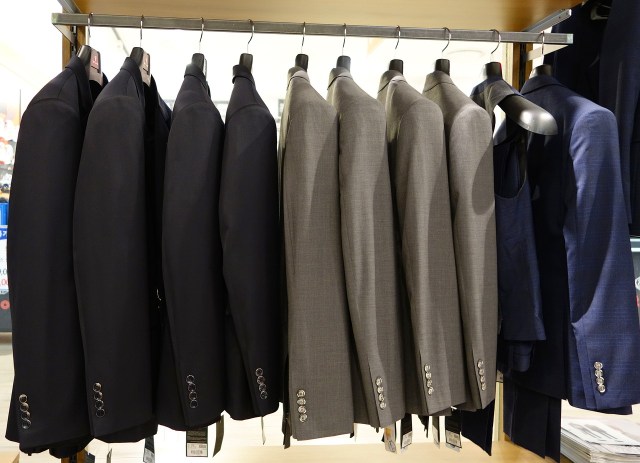
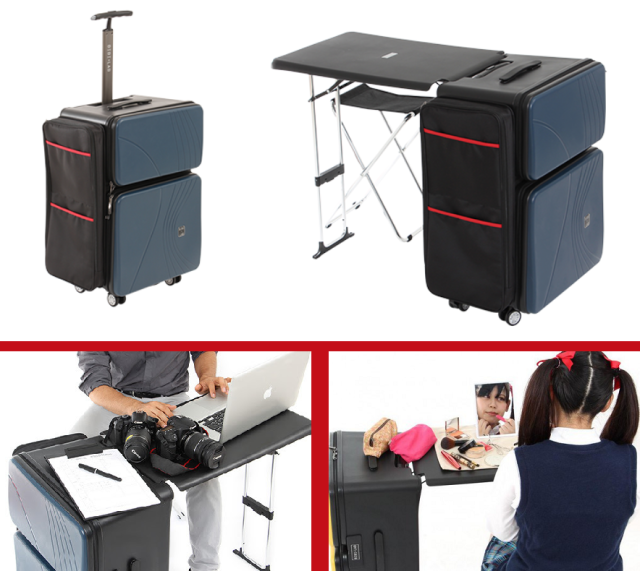
 Starbucks Japan unveils new sakura cherry blossom collection for hanami season 2026
Starbucks Japan unveils new sakura cherry blossom collection for hanami season 2026 One Piece creator has hidden secret of anime treasure’s identity in chest at bottom of real-world ocean
One Piece creator has hidden secret of anime treasure’s identity in chest at bottom of real-world ocean Is Tokyo Station’s startlingly expensive wagyu bento boxed lunch worth its high price?[Taste test]
Is Tokyo Station’s startlingly expensive wagyu bento boxed lunch worth its high price?[Taste test] Visiting Japan’s one-and-only, and only-for-a-limited-time, Dragon Ball noodle restaurant[Photos]
Visiting Japan’s one-and-only, and only-for-a-limited-time, Dragon Ball noodle restaurant[Photos] Live-action One Piece’s Luffy teaches Sesame Street’s Elmo a Japanese word for friendship[Video]
Live-action One Piece’s Luffy teaches Sesame Street’s Elmo a Japanese word for friendship[Video] Over four billion yen in lost cash was found in Tokyo last year, setting new record
Over four billion yen in lost cash was found in Tokyo last year, setting new record Starbucks Japan releases new sakura goods and drinkware for cherry blossom season 2026
Starbucks Japan releases new sakura goods and drinkware for cherry blossom season 2026 Buildings transform into giant robots in Japanese real estate company’s anime commercial【Video】
Buildings transform into giant robots in Japanese real estate company’s anime commercial【Video】 Studio Ghibli adds new Kiki’s Delivery Service notebook and ceramic cake case to stores in Japan
Studio Ghibli adds new Kiki’s Delivery Service notebook and ceramic cake case to stores in Japan Taste-testing Japan’s real-world Dragon Balls and Senzu Beans at Marugame Seimen
Taste-testing Japan’s real-world Dragon Balls and Senzu Beans at Marugame Seimen Starbucks Japan releases first-ever Hinamatsuri Girls’ Day Frappuccino
Starbucks Japan releases first-ever Hinamatsuri Girls’ Day Frappuccino Japanese restaurant chain serves Dragon Ball donuts and Senzu Beans this spring
Japanese restaurant chain serves Dragon Ball donuts and Senzu Beans this spring Japan’s cherry blossom season predicted to start earlier than we’d thought, especially in Tokyo
Japan’s cherry blossom season predicted to start earlier than we’d thought, especially in Tokyo Japan Extreme Budget Travel! A trip from Tokyo to Izumo for just 30,000 yen [Part 2]
Japan Extreme Budget Travel! A trip from Tokyo to Izumo for just 30,000 yen [Part 2] Japan’s craziest burger chain takes menchi katsu to new extreme levels
Japan’s craziest burger chain takes menchi katsu to new extreme levels Sakura Festival in Chiyoda mixes illuminations, boats, music, and Rilakkuma in the heart of Tokyo
Sakura Festival in Chiyoda mixes illuminations, boats, music, and Rilakkuma in the heart of Tokyo Viral Japanese cheesecake from Osaka has a lesser known rival called Aunt Wanda
Viral Japanese cheesecake from Osaka has a lesser known rival called Aunt Wanda Japan’s newest Shinkansen has no seats…or passengers [Video]
Japan’s newest Shinkansen has no seats…or passengers [Video] Foreigners accounting for over 80 percent of off-course skiers needing rescue in Japan’s Hokkaido
Foreigners accounting for over 80 percent of off-course skiers needing rescue in Japan’s Hokkaido Super-salty pizza sends six kids to the hospital in Japan, linguistics blamed
Super-salty pizza sends six kids to the hospital in Japan, linguistics blamed Starbucks Japan unveils new sakura Frappuccino for cherry blossom season 2026
Starbucks Japan unveils new sakura Frappuccino for cherry blossom season 2026 Foreign tourists in Japan will get free Shinkansen tickets to promote regional tourism
Foreign tourists in Japan will get free Shinkansen tickets to promote regional tourism The 10 most annoying things foreign tourists do on Japanese trains, according to locals
The 10 most annoying things foreign tourists do on Japanese trains, according to locals Take a trip to Japan’s Dododo Land, the most irritating place on Earth
Take a trip to Japan’s Dododo Land, the most irritating place on Earth Naruto and Converse team up for new line of shinobi sneakers[Photos]
Naruto and Converse team up for new line of shinobi sneakers[Photos] Survey asks foreign tourists what bothered them in Japan, more than half gave same answer
Survey asks foreign tourists what bothered them in Japan, more than half gave same answer Japan’s human washing machines will go on sale to general public, demos to be held in Tokyo
Japan’s human washing machines will go on sale to general public, demos to be held in Tokyo Starbucks Japan releases new drinkware and goods for Valentine’s Day
Starbucks Japan releases new drinkware and goods for Valentine’s Day We deeply regret going into this tunnel on our walk in the mountains of Japan
We deeply regret going into this tunnel on our walk in the mountains of Japan Studio Ghibli releases Kodama forest spirits from Princess Mononoke to light up your home
Studio Ghibli releases Kodama forest spirits from Princess Mononoke to light up your home Major Japanese hotel chain says reservations via overseas booking sites may not be valid
Major Japanese hotel chain says reservations via overseas booking sites may not be valid Put sesame oil in your coffee? Japanese maker says it’s the best way to start your day【Taste test】
Put sesame oil in your coffee? Japanese maker says it’s the best way to start your day【Taste test】 No more using real katana for tourism activities, Japan’s National Police Agency says
No more using real katana for tourism activities, Japan’s National Police Agency says Over four billion yen in lost cash was found in Tokyo last year, setting new record
Over four billion yen in lost cash was found in Tokyo last year, setting new record Starbucks Japan releases new sakura goods and drinkware for cherry blossom season 2026
Starbucks Japan releases new sakura goods and drinkware for cherry blossom season 2026 Buildings transform into giant robots in Japanese real estate company’s anime commercial【Video】
Buildings transform into giant robots in Japanese real estate company’s anime commercial【Video】 Studio Ghibli adds new Kiki’s Delivery Service notebook and ceramic cake case to stores in Japan
Studio Ghibli adds new Kiki’s Delivery Service notebook and ceramic cake case to stores in Japan Taste-testing Japan’s real-world Dragon Balls and Senzu Beans at Marugame Seimen
Taste-testing Japan’s real-world Dragon Balls and Senzu Beans at Marugame Seimen The results are in! One Piece World Top 100 characters chosen in global poll
The results are in! One Piece World Top 100 characters chosen in global poll 420 million yen in cash-filled suitcases stolen on Tokyo streets, incidents at Haneda and Hong Kong follow
420 million yen in cash-filled suitcases stolen on Tokyo streets, incidents at Haneda and Hong Kong follow Japan’s favorite curry rice restaurant teams up with convenience store for Super Spicy Curry Buns
Japan’s favorite curry rice restaurant teams up with convenience store for Super Spicy Curry Buns The best Hobonichi diaries, covers and stationery for 2026
The best Hobonichi diaries, covers and stationery for 2026 Japan Extreme Budget Travel! A trip from Tokyo to Izumo for just 30,000 yen [Part 2]
Japan Extreme Budget Travel! A trip from Tokyo to Izumo for just 30,000 yen [Part 2] The “Nintendo PlayStation”: a look at the console that could’ve changed gaming history【Video】
The “Nintendo PlayStation”: a look at the console that could’ve changed gaming history【Video】 A Japanese dating app matched our bachelorette with a Buddhist monk, and she learned some things
A Japanese dating app matched our bachelorette with a Buddhist monk, and she learned some things Is Starbucks Japan’s new Hinamatsuri Girls’ Day Frappuccino suitable for adults?
Is Starbucks Japan’s new Hinamatsuri Girls’ Day Frappuccino suitable for adults?